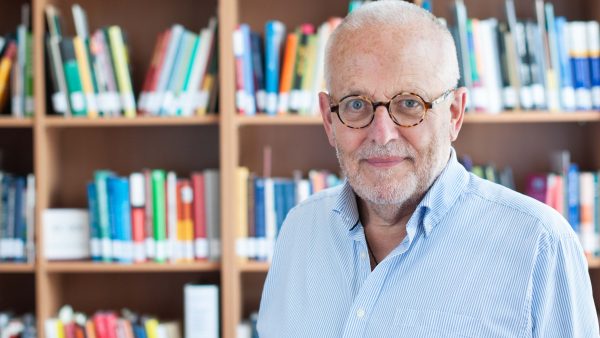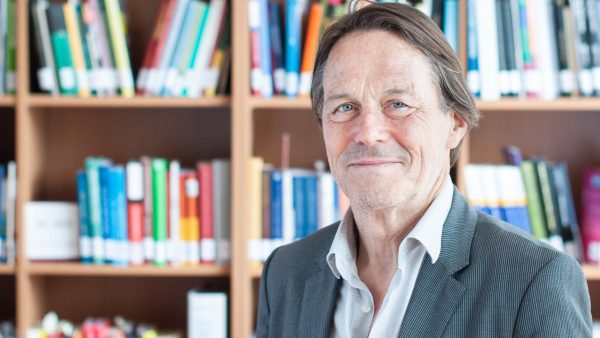Empowering Trust Driven Philanthropy – Phase 2: Implementation – A Proposal
Phase 1: Towards a New Paradigm
Philanthropy.Insight, a project within the Maecenata Foundation’s Tocqueville Forum, began on 1 January, 2019. The object of the initial phase, generously supported by the Carnegie UK Trust, was to devise a methodology for assessing philanthropic institutions in a novel way: The findings of phase 1 were discussed with international experts in May, 2019, and subsequently published in time for a presentation held in Paris on 23 May, 2019.
Key Findings:
- The issue of how philanthropic institutions can present themselves as trustwor- thy is the centre of all
- Philanthropy should be viewed in a global
- Rather than focussing only on impact, five criteria are suggested by which philanthropic institutions may be
- A methodology based on a category model allows philanthropic institutions to be compared across cultural, legal, and other
- The tool enables a self-assessment for governance and benchmarking as much as an assessment from outside for policy and research
- Using this tool should underpin philanthropic institutions’ licence to operate in a world that is becoming increasingly
The methodology and tool may now be freely used by anybody.
Phase 2: Implementation
It was felt from the beginning that the Philanthropy.Insight team should take the project further
- by associating itself with international philanthropy associations (e.g. DAFNE), think tanks, research projects, and major funders to encourage a broad based discourse;
- by putting the tool to test with a select number of approx. 30 internationally active foundations (phase 2), and if possible, establish an ongoing monitoring process (phase 3);
- by involving foundations across the globe on a partnership
Objectives
As a result of numerous multilateral and bilateral conversations held during phase 1, with experts from academia and think tanks and aficionados of philanthropy as well as high-ranking philanthropy executives, it has emerged that building trust with society needs to be seen as a major policy priority. Indeed, a societal ‘licence to operate’ depends upon foundations being trusted as sustainable, committed, pur- pose-driven, relevant, and accountable civil society players. Strengthening trust in philanthropic actors and institutions has become the top priority goal of the project. Also, it remains to be seen whether the methodology and tool as developed in theory will prove to be workable, innovative, and sustainable when using it in practice. In addition, the many contacts established before and during phase 1 have led to a number of ideas aimed at combining this methodology with other exciting re- search on foundations and policy developments. Phase 2 will therefore try to es- tablish a network of projects, exchange ideas and results with other institutions and thus enable the project to contribute to a larger international community of re- searchers and think tanks. Importantly, the project will continue to work with foundations in order to achieve comprehensive results.
Approach
Moving the Issue
- Philanthropic Institutions and Leaders
The project wishes to attract philanthropic leaders – donors and philanthropy executives. Leadership needs to be exercised and demonstrated by individuals and institutions in the philanthropic field who are eager and willing to take a trust-driven philanthropy to new frontiers. Hence, Philanthropy.Insight calls on ten (or more) landmark philanthropic players who through their influence, reach and credibility may serve as drivers of change for this new paradigm in the philanthropic field. The institutions leading the change for a trust-driven philanthropy may, if they so wish, display their commitment by publicly communicating the application of the criteria and incorporating them into their existing governance structure.
As Philanthropy.Insight seeks to highlight the value of self-evaluation, committed institutions may start to process the Philanthropy.Insight roadmap while also being tested from outside. It will be interesting to see to what extent internal and external judging will differ. Individual philanthropic institutions may, of course, choose to have all information treated confidentially or anonymously.
- Advisory Council
The team will welcome volunteers as experts to the Philanthropy.Insight Advisory Council. The main function of this body will be to advise, inspire, and support both the foundations involved and the Philanthropy.Insight team.
Organizing the Project
Phase 2 will follow the same organizational model as phase 1. The project will be hosted by the Maecenata Foundation and directed by Rolf Alter. Rupert Strachwitz, CEO of the foundation, who has been involved with philanthropy as a practitioner, consultant, and academic for more than 30 years, will also devote time to this pro- ject. Additional staff will need to be hired. The establishment of a long-term Philan- thropy.Insight Centre at the Maecenata Foundation or as an independent body might be an option to be discussed as the project moves into phase 3. It is hoped that Philanthropy.Insight will be able to champion for the paradigm change towards a trust-driven philanthropy and ensure its appropriate maintenance.
Partnering the Project
Philanthropy.Insight is conceived as a partnership project. For phase 2, the Philanthropy.Insight team is keen to attract 3 types of partners, who are ready to ded- icate their commitment and durability to join the mission. Partners may join in one or more than one capacity.
- Research Partners
As a Research Partner, an individual or organization from the academic or practical field of philanthropy becomes a major driver of the development of the Philanthropy.Insight criteria and their application. Ideally, integrating the vision of Philanthropy.Insight into broader academic programmes, i.e. using the material, collabo- rating with Philanthropy.Insight and spreading the word in a wider sense, will foster the reflection of trust in philanthropy.
- Case-Study Partners
Case-Study Partners, i.e. philanthropic institutions will apply the methodology and tool to their own institution and permit the team to do so in a parallel experimental exercise. This implies putting the institutional reach, impact and size to test in order to gain confidence that it serves to promote trust-driven philanthropy. Case study partners may, for example, select a team of institutional representatives for a task- force in charge of conducting the auto-evaluation along the proposed Philan- thropy.Insight criteria. From the studies conducted, data will be aggregated, pre- senting results in the Philanthropy.Insight Report which will be published at the end of the second year.
- Funding Partners
Becoming a Funding Partner highlights the need for financial support for the project. Over the next three-year period funding partners will, of course, be invited to regular meetings and to contribute to, inspire and comment on the strategic devel- opment of the project.
Who is Who
The Maecenata Foundation (Maecenata Stiftung) is an independent think tank in the legal form of a private charitable foundation. Its legal seat is Munich, Germany. Operations are concentrated in Berlin. The focus is on international civil society and philanthropy. The foundation operates in 5 programmes:
- The Maecenata Institute for Philanthropy and Civil Society (since 1997), an independent research and policy institution,
- The Transnational Giving programme (since 2001), acting as the German partner in the Transnational Giving Europe network,
- The Europe Bottom Up programme (since 2012), an action programme to promote the European idea,
- The Tocqueville Forum (since 2016), a networking, policy, and support programme, including a public library,
- The Centre for Humanitarian Action (since 2018), a think tank on issues of humanitarian
Besides, the foundation hosts a MENA Study Centre and runs several series of publications on civil society and philanthropy issues.
Dr. Rolf Alter, an experienced economist, is a Senior Fellow of the HERTIE School of Governance in Berlin since 2017. This follows over 25 years at the OECD in Paris. In 2006, he was appointed Chief of Staff to the current OECD Secretary-General and became Director of Public Governance in 2009. Rolf built a team of 200+ staff to support governments in improving their public sector performance for inclusive growth and the competitiveness of their economies. He has been en- gaged with governments well beyond the OECD, especially in the Middle-East, South America and Central Asia. Rolf has also worked for the IMF in Washington, and for the German Ministry of Economy in Bonn. For several years he is a member of the Advisory Board of the Global Risk Report of the WEF. Rolf holds a doctorate degree from the University of Goettingen, Germany. In 2013, he received a doc- torate h.c. from the National University of Hungary. In 2016, he was awarded the
O.P. Dwivedi prize by the IASIA for outstanding contribution to public administra- tion and policy in the world. (Contact: ra@maecenata.eu)







